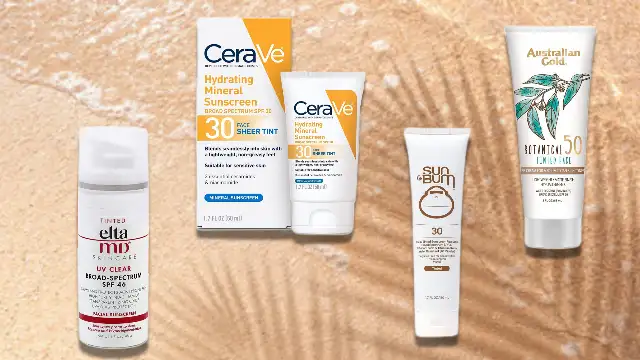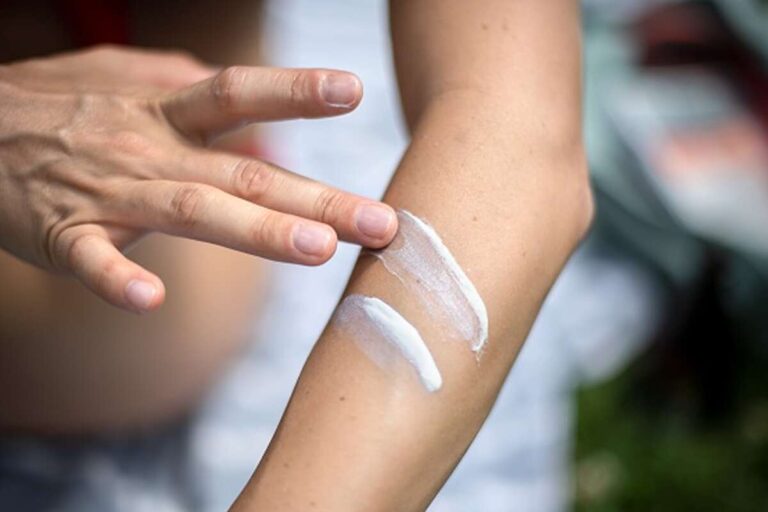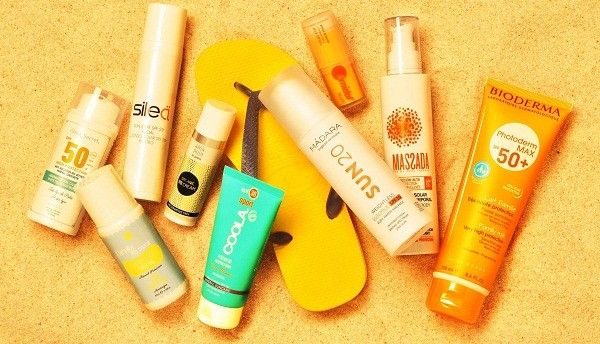
Contrary to popular belief, persons with darker skin still require sunscreen since they can burn or tan easily. Dermatologists advise using lotions with an SPF of 30 on patients with darker skin. According to dermatologists, sunscreen not only protects the skin but also has anti-aging effects and helps with melasma and other dark spots and skin discolorations. Members of the black and dark communities frequently hold the opinion that they don’t need to use sunscreen because they don’t burn from the sun. A dermatologist and associate clinical professor at Yale University School of Medicine in the United States says these misconceptions about black and brown people’s ability to burn, tan, or get skin cancer are the result of a “old school mentality” that sunscreen only prevents sunburn and skin cancer. She claims everything to be false. It’s okay if we get burned. Tans and cancers of the skin are both possibilities. Similarly to other physicians, she recommends that persons with darker complexion make sunscreen use a daily habit.
Types of sunscreen
Chemical Sunscreens
You can choose between chemical and physical sunscreens. Chemical sunscreens work by soaking up UVA and UVB rays from the skin and then emitting them back into the environment. You should expect greater water and perspiration resistance from these sunscreens. Shen states that the active ingredients in chemical compounds are “all the ones you can’t pronounce,” including avobenzone, oxybenzone, and octinoxate.

Physical or mineral sunscreens
Physical or mineral sunscreens work by physically preventing ultraviolet radiation from ever reaching the skin. Zinc oxide and titanium dioxide, which are kinder to pores and generally healthier for sensitive skin, are the major components of mineral sunscreens. For customers with darker complexion, the drawback of mineral formulae is that they can often leave a “white cast” on the skin.

Returning to tinted sunscreen, noncomedogenic tinted mineral products can be a godsend for people of colour with sensitive skin in terms of preventing sun damage (and concealing hyperpigmentation) while reducing breakouts and rashes. Fortunately, there are high-quality cosmetics available; when buying, look for items from companies like Ilia Beauty and bareMinerals.
There are other options available to you besides sunscreen.
In the heat of the summer, does applying sunscreen again every hour feel futile? (I’m sweating! Why?) Remember that you also own additional weapons. Sun hats and UV-protective apparel can both shield the skin from the damaging effects of UV radiation. In certain circumstances, these items also have breathable fabric, which can keep you cool on hot days. Wearing pants, rash guards, cover-ups, or even your favourite MLB hat can reduce UV damage while also reducing annoyance and grease. Shen remarks, “At the beach, it’s usually my kids wearing rash protectors.”
Check for melanoma in your moles
Melanoma in individuals of race frequently goes undetected until it has progressed. This can be due to a number of things, such as the myth that people of colour can’t acquire skin cancer since their skin is darker and doesn’t burn as easily, as well as the fact that doctors lack the necessary expertise to recognise cancerous moles on patients with darker skin. However, melanoma can be fatal if neglected, so it’s crucial to be aware of the symptoms.
A lot of dermatologists advise having annual skin cancer screenings. Shen advises following the “ABCDEs” while performing at-home mole checks: check any moles you may have for asymmetry, irregular borders, numerous or dark hues, a diameter more than 6 mm, and changes in size, shape, and colour. Additionally, according to Shen, melanomas in people with darker skin frequently manifest themselves in parts of the body that are shielded from the sun, such as the palms and soles. Make a dermatologist appointment as soon as you see anything unusual. (If at all possible, it’s best to schedule one who frequently sees patients of colour.) Based on the look of your moles and risk factors, such as a family history of melanoma, they will determine how frequently you should return for follow-up checks.
Sunblock for dark and black skin advice in Islamabad Pakistan
For any type of Sunblock for dark and black skin advice in Islamabad Pakistan ,visit IPAL skin care clinic (one of the best skin care clinic in Islamabad).

